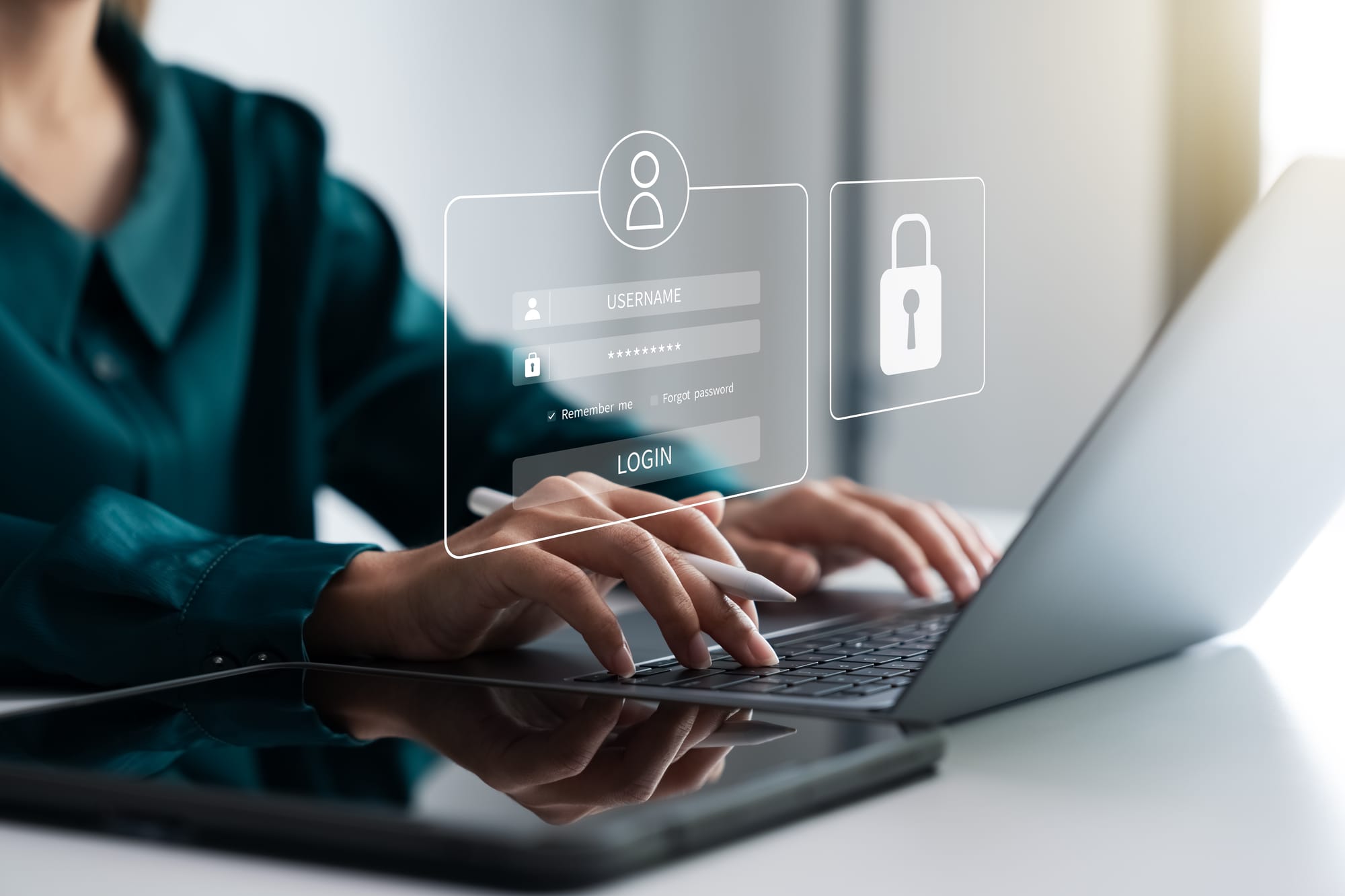Is It Safe to Give a Bookkeeper Access to Your Financial Accounts?

Hiring a bookkeeper can be a crucial step in managing your finances, but it often raises the question of how much access they truly need to your accounts. While it's essential for bookkeepers to have enough access to ensure your records are accurate and up-to-date, granting them full control could expose you to unnecessary risks. Bookkeepers generally require view-only access to bank and credit card statements, which allows them to reconcile accounts without the ability to move funds. They also need permissions in accounting software like QuickBooks Online to categorize data and run reports, as well as access to document-sharing tools for uploading receipts and invoices. By understanding the specific access requirements of a bookkeeper, you can protect your finances while keeping your records in order.
Understanding Bookkeeper Access
Grasping the concept of bookkeeper access is crucial for maintaining financial security while enabling efficient record-keeping. Let's explore the necessary permissions and dispel common misconceptions.
Identifying Necessary Permissions
Bookkeepers require specific access to perform their duties effectively. This access should be tailored to their responsibilities without compromising financial security. View-only access to bank statements and credit card accounts is often sufficient for reconciliation purposes. This allows bookkeepers to verify transactions without the ability to move funds. Access to accounting software, such as QuickBooks Online, is essential for categorizing expenses, generating reports, and maintaining accurate records. However, this access should be limited to bookkeeping functions only. Document-sharing platforms are necessary for uploading and organizing receipts, invoices, and other financial documents. These tools should have secure permissions to protect sensitive information.
Common Misconceptions About Access
Many believe bookkeepers need full access to all financial accounts, which is not accurate. This misconception can lead to unnecessary security risks. Bookkeepers do not require the ability to transfer funds, write checks, or make payments. Their role is to record and categorize transactions, not to manage money directly. Another misconception is that bookkeepers need personal login credentials. Professional bookkeepers use secure, limited-access invitations to perform their duties without compromising account security. It's also incorrect to assume bookkeepers need access to all financial systems. Access should be limited to only those systems directly related to bookkeeping tasks.
What Bookkeepers Need
Understanding the specific access requirements for bookkeepers is essential for maintaining financial accuracy while preserving security. Let's examine the key types of access bookkeepers typically need.
View-Only Bank Access
View-only access to bank accounts is a fundamental requirement for bookkeepers. This level of access allows them to perform crucial tasks without compromising account security. With view-only access, bookkeepers can monitor transactions, reconcile accounts, and ensure all financial activities are accurately recorded. This visibility is essential for maintaining up-to-date and precise financial records. However, view-only access does not allow bookkeepers to initiate transfers, make payments, or alter any account settings. This limitation is a critical safeguard that protects your finances while still enabling effective bookkeeping. By providing view-only access, you maintain control over your accounts while giving your bookkeeper the necessary tools to perform their job efficiently.
Accountant Access in QuickBooks
QuickBooks Online and similar accounting software platforms offer specific access levels designed for bookkeepers and accountants. This tailored access is crucial for effective financial management. Accountant access in QuickBooks allows bookkeepers to categorize transactions, reconcile accounts, and generate financial reports. These functions are essential for maintaining accurate books and providing insights into your financial status. This level of access typically does not allow bookkeepers to change critical account settings or manage payroll. These restrictions help maintain the integrity of your financial data while still allowing for necessary bookkeeping tasks. By utilizing accountant access, you can ensure your bookkeeper has the tools they need without granting unnecessary permissions that could compromise your financial security.
Protecting Your Financial Security
Safeguarding your financial information while working with a bookkeeper is paramount. Let's explore how limited access and data privacy contribute to maintaining your financial security.
Importance of Limited Access
Limited access is a key principle in protecting your financial accounts when working with a bookkeeper. It ensures that your finances remain secure while still allowing for efficient bookkeeping. By restricting access to view-only or specific bookkeeping functions, you minimize the risk of unauthorized transactions or changes to your accounts. This approach protects your funds from potential misuse or errors. Limited access also creates a clear audit trail. When bookkeepers have specific, restricted permissions, it's easier to track and verify all activities related to your financial records. This approach not only protects your assets but also provides peace of mind, knowing that your bookkeeper can perform their duties without having unnecessary control over your finances.
Maintaining Data Privacy
Data privacy is a critical aspect of financial security when working with a bookkeeper. Protecting sensitive information ensures that your personal and business finances remain confidential. Implementing secure document-sharing systems is essential. These platforms allow bookkeepers to access necessary documents without exposing all your financial information. It's important to use encryption and secure file transfer protocols when sharing financial data. This practice protects your information from potential breaches during transmission. Regularly reviewing and updating access permissions helps maintain data privacy. Ensure that your bookkeeper only has access to the information they need for their current tasks.
Best Practices for Safe Access
Implementing best practices for safe access is crucial when working with a bookkeeper. Let's explore effective methods to ensure secure collaboration while maintaining financial integrity.
Using Software Invites
Software invites are a secure way to grant bookkeepers access to your financial accounts and tools. This method offers several advantages over sharing personal login credentials. Most accounting software and financial platforms provide specific invitation features for professionals like bookkeepers. These invites create separate, controlled access points. Using invites allows you to set specific permission levels, ensuring bookkeepers only have access to the features and information necessary for their role. This approach also makes it easy to revoke access if needed, providing an additional layer of control and security over your financial information.
Regular Review of Access

Conducting regular reviews of your bookkeeper's access is a crucial practice for maintaining financial security. This process helps ensure that permissions remain appropriate and necessary. Set a schedule for reviewing access permissions, such as quarterly or bi-annually. During these reviews, assess whether current access levels are still required for your bookkeeper's duties. Check for any unused or outdated access points and remove them promptly. This practice reduces potential vulnerabilities in your financial security setup. Regular reviews also provide an opportunity to discuss any changes in your bookkeeping needs or processes, allowing you to adjust access permissions accordingly.
Retaining Control and Peace of Mind
Maintaining control over your financial accounts while working with a bookkeeper is essential for peace of mind. Let's explore strategies to ensure you remain in charge of your finances.
Setting Clear Access Permissions
Establishing clear and specific access permissions is fundamental to retaining control of your financial accounts. This process involves defining exactly what your bookkeeper can and cannot do. Start by listing all the tasks your bookkeeper needs to perform. Then, match these tasks with the minimum level of access required for each one. Use role-based access control features in your accounting software when available. This allows you to create a custom set of permissions tailored to your bookkeeper's specific responsibilities. Regularly review and update these permissions to ensure they align with your current needs and the bookkeeper's role.
Communicating with Your Bookkeeper
Open and clear communication with your bookkeeper is key to maintaining control and ensuring mutual understanding of access and responsibilities. Discuss access requirements and limitations openly with your bookkeeper. Ensure they understand why certain restrictions are in place and how they protect both parties. Establish a protocol for requesting additional access if needed. This allows your bookkeeper to perform their duties efficiently while keeping you informed of any changes. Regular check-ins can help address any access-related issues promptly. These discussions also provide opportunities to review the effectiveness of current access arrangements.
